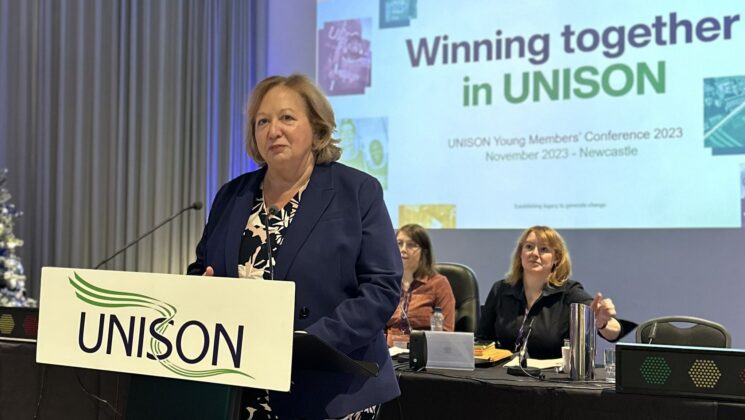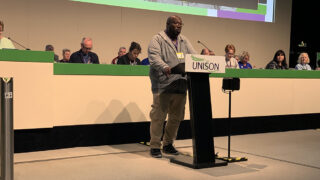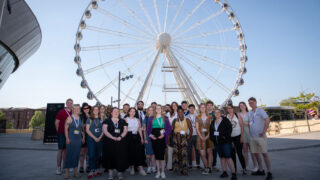Young members from across the UK gathered in Newcastle over the weekend for the third annual UNISON young members’ conference.
The conference was the first to take place after the age-limit for young members was increased to 30 and under (from 26) via a rule amendment at this year’s national delegate conference.
At the time, UNISON’s young members officer Josephine Grahl said: “The increase in age reflects the changes in the workforce that have happened since UNISON’s first young members’ groups were established in 1996″.
And she added that these included: “The increase in school leaving age, the expansion of participation in higher and further education, and the fact that the public sector workforce tends, these days, to be older than the average”.
The change reflects the fact that, on average, young people are achieving milestones in their lives later than in previous generations.
A 2019 Office of National Statistics report: Journeying into adulthood highlighted a number of examples.
- In 1998, on average, people left full-time education at 17.8 years old – in 2018 this was 19.3.
- In 1997 it was not until the age of 26 that 50% of people lived in a home they own – in 2017, this was 34.
- In 1997 the average age of a first-time mother was 27 – in 2016 this was 29. (The average age of a first-time father is not easily calculated).
The last of these examples highlights an issue that took centre stage at last weekend’s conference.
A motion on maternity pay noted that: “A survey conducted this year by Censuswide found that young people were considering delaying or deciding not to have children. More than half cited financial reasons as the number one reason for this”.
It went on to argue that: “With the cost-of-living crisis and ongoing inflation, it is clear to see that the current maternity pay provision does not sufficiently cover everyday costs.” It also noted the toll this can have on the financial independence of women, leading to an outdated, male-centric ‘breadwinner’ concept re-emerging in dual-income households.
It called for the national young members’ forum to prioritise a campaign to raise awareness and provide young member officers with resources to better campaign, locally, on the issue.
Speaking at the conference, UNISON general secretary Christina McAnea also highlighted how the world of work has changed since she left school. She said: “I remember entering the world of work for the first time. It was exciting and scary.
“And work now can still be exciting and scary. But when I started work, the prospect of owning a house was only a few years away, the retirement age was younger, childcare costs weren’t through the roof, and I wasn’t saddled with thousands of pounds in student loan debt.
“We didn’t have the stresses of 24-hour news – the constant barrage of information from Instagram, TikTok and Facebook. And we hadn’t just spent the best part of two years in a pandemic and a lockdown.
“So, without doubt, being young today is so much harder. And I say that as the mother of two young people. But I am constantly in awe of the resilience, creativity, and dynamism of young workers today.
“UNISON believes in you. Believe in yourself and keep fighting for our members.”






